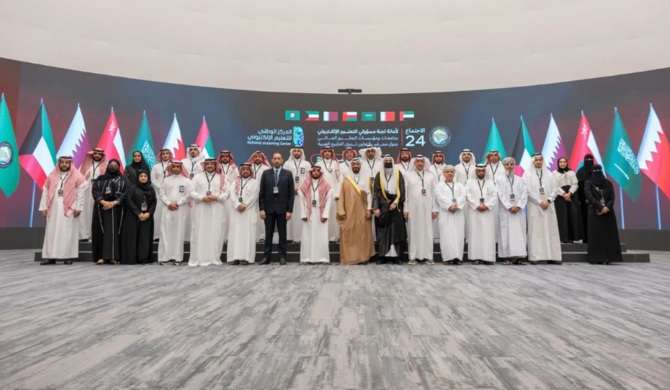Gulf nations unite to build Arabic AI systems for education and digital learning
Riyadh – Gulf countries have taken a major step toward transforming the future of education through the power of artificial intelligence.
Saudi Arabia, represented by the National Center for e-Learning, hosted the 24th meeting of the Committee of e-Learning Officials in the Gulf Cooperation Council countries to strengthen cooperation and innovation in digital education.
The meeting brought together e-learning leaders, deans, and higher education officials from across the GCC. It focused on building a shared vision for using AI in education, developing digital learning ecosystems, and ensuring that Gulf universities remain at the forefront of technological progress.
The discussions highlighted the region’s growing commitment to adopting AI-powered tools that enhance teaching quality, support educators, and personalize learning experiences for students.
The move also reflects the GCC’s broader strategy to create smart education systems aligned with the region’s digital transformation goals.
Experts at the meeting explored the potential of Arabic-language AI models tailored for education. Developing a unified Gulf AI system in Arabic is seen as a cornerstone for advancing e-learning platforms and ensuring that cultural and linguistic values are deeply embedded in future technologies.
The meeting also addressed strategic trends in artificial intelligence and its governance within the education sector. Attendees discussed how AI can be responsibly integrated into classrooms to support creativity, innovation, and ethical digital practices among learners.
Representatives from Saudi and other Gulf universities shared successful case studies in using AI for virtual classrooms, data-driven assessments, and intelligent tutoring systems.
These examples demonstrated how technology is helping to bridge learning gaps and expand access to quality education across the region.
One of the meeting’s key outcomes was the proposal to develop a unified Gulf language model to serve as a foundation for future AI and e-learning systems.
This model will not only strengthen Arabic content in digital platforms but also promote research and innovation in AI applications for education.
Participants agreed on the importance of ongoing collaboration between GCC countries to establish a shared educational AI strategy.
This includes creating frameworks that guide responsible technology use, encourage academic innovation, and align with each country’s national digital agenda.
The committee approved recommendations from Saudi Arabia’s National Center for e-Learning to adopt AI as a reference model across Gulf educational institutions.
This step ensures that all GCC countries benefit from standardized approaches, shared best practices, and cooperative development in digital education.
By working together, Gulf nations aim to build a strong foundation for an AI-driven educational ecosystem that nurtures creativity, promotes critical thinking, and prepares students for the digital economy.
The initiative also supports the Vision 2030 goals of countries like Saudi Arabia and the UAE, emphasizing knowledge-based economies and smart governance.
The collaboration symbolizes a new era of unity and innovation in the Gulf, where education and technology intersect to empower future generations.
With a shared focus on Arabic AI, digital transformation, and responsible innovation, the GCC is setting a global example in how regional cooperation can shape the future of learning.


